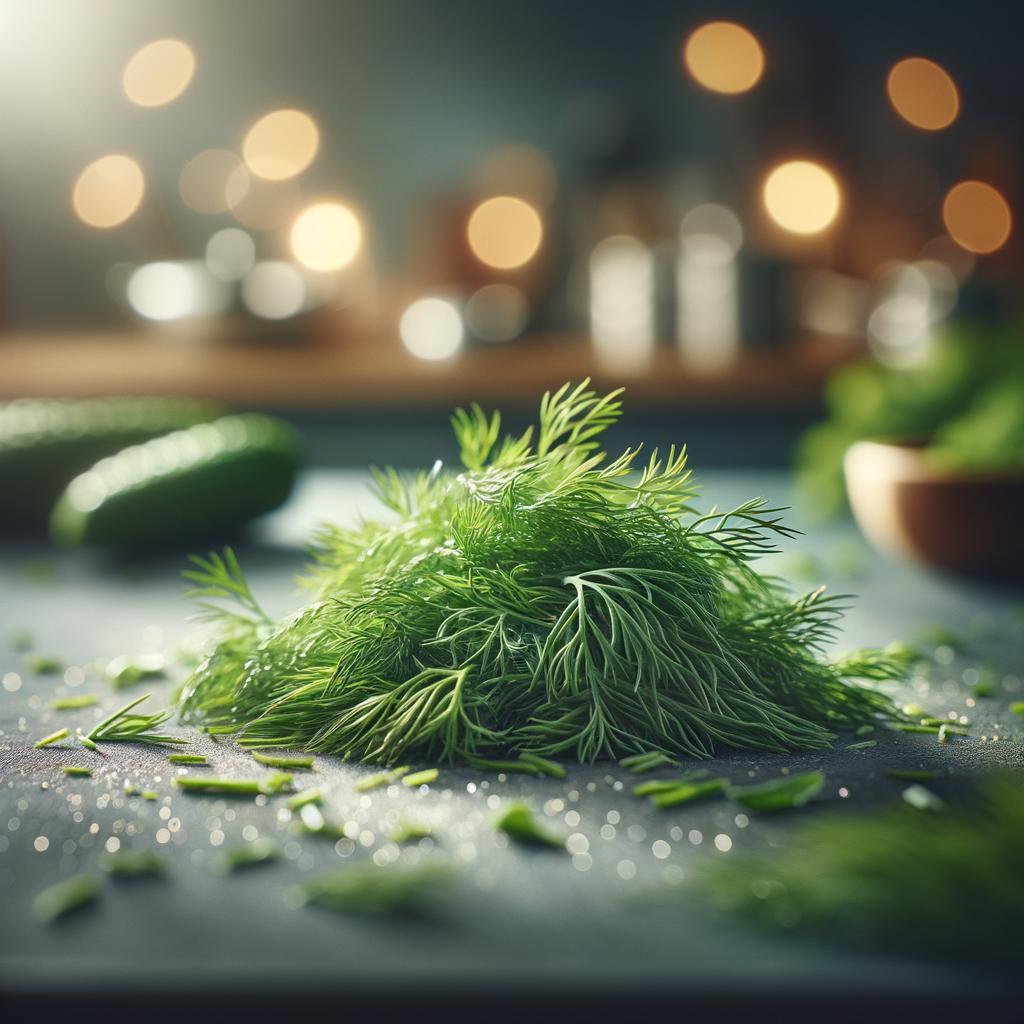Chopped Fresh Dill

Description
Dill, or Anethum graveolens, is a delightful herb that instantly brings to mind the fresh, vibrant flavors of summer. Its feathery, fern-like leaves are a bright green hue, offering a visually appealing garnish to any dish. The texture is soft and delicate, with a slight crispness that adds a pleasant crunch when sprinkled over salads or other cold dishes. Its flavor profile is unique and distinctive, a delightful blend of sweet, grassy, and slightly bitter notes with a hint of anise. The aroma is equally captivating, with a fresh and slightly tangy scent that can instantly elevate a dish. What sets dill apart from similar herbs is its dual role as both a culinary ingredient and a decorative plant, often used in flower arrangements for its attractive foliage.
Primary Uses
Dill is a versatile herb, used extensively in a variety of cuisines, from Mediterranean to Eastern European. It is a key component in dishes like tzatziki, a Greek yogurt-based sauce, dill pickles, and the Russian soup called borscht. It pairs beautifully with fish, particularly salmon, and is often used in salads, dips, and sauces. Dill's non-culinary uses include its role in traditional medicine, where it has been used to aid digestion and soothe stomach ailments. Its seeds are often used in pickling and to make dill vinegar.
History
The history of dill is as rich and vibrant as its flavor. It has been used for culinary and medicinal purposes since ancient times. The Romans believed dill brought good fortune, while the Greeks saw it as a symbol of wealth. In the Middle Ages, dill was used against witchcraft. Over time, its use has evolved, and it is now a staple in many modern kitchens. An interesting folklore associated with dill is that it was once considered a love potion and was used in wedding ceremonies during the 17th century in England.
Nutritional Information
Dill is not just a flavorful herb, but also a powerhouse of nutrition. It is rich in vitamins A, C, and D, along with minerals like iron, manganese, and calcium. It also boasts a good amount of dietary fiber. Dill's health benefits include its potential to aid in digestion, reduce inflammation, and protect against certain diseases due to its antioxidant properties. Compared to similar herbs like parsley, dill holds its own, offering a comparable nutritional profile with the added bonus of its unique flavor. Remember, a little dill goes a long way, both in flavor and nutrition.

